Best Foods for Preventing Colon Cancer
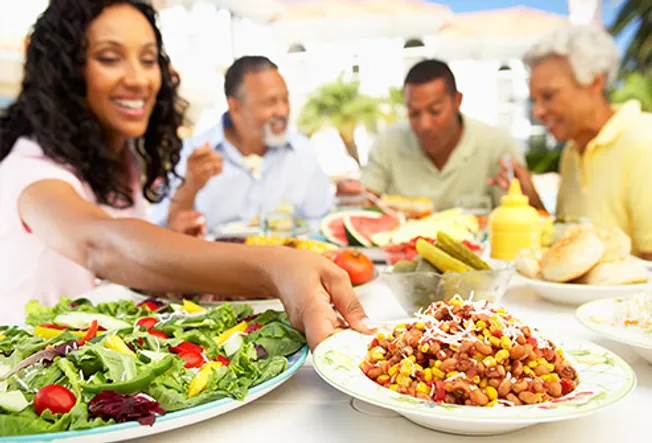
Diet Plays a Role
Colorectal cancer is the third most common type of cancer for both men and women. Smart food choices may help you lower your chances of getting it. Some studies say that people who eat right, exercise, stay a healthy weight, and keep alcohol to a minimum may cut their odds of the disease by more than a third.
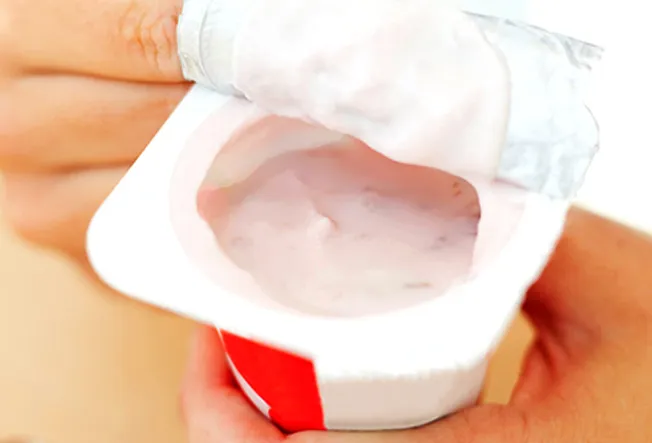
Eat: Dairy
Most studies agree that calcium-rich dairy products can make you less likely to have colon growths (called adenomas) and colorectal cancer. Calcium supplements may also be helpful. Ask your doctor what might be right for you. Vitamin D (which is added to milk) might also protect against this type of cancer, but more research is needed.
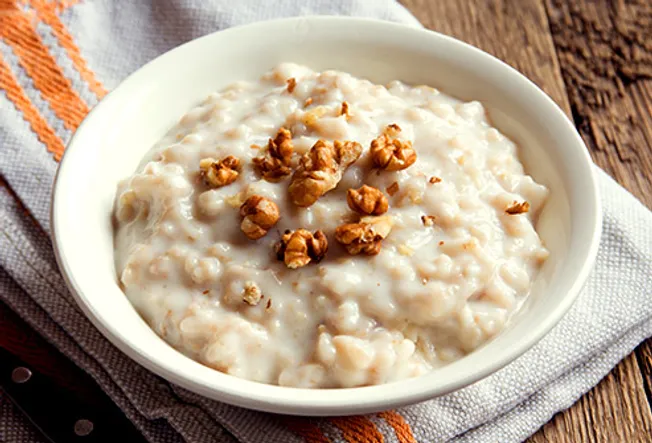
Eat: Whole Grains
These are packed with nutrients and are good sources of magnesium and fiber. They keep your stools moving, and along the way, they may grab onto cancer-causing compounds in your colon. Aim for 90 grams of whole grains daily -- oatmeal, whole wheat bread, and brown rice are good options.
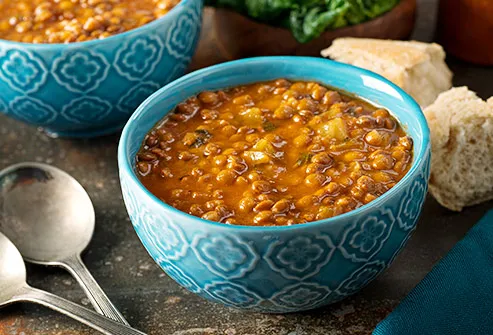
Eat: Beans
These and other legumes (soybeans, peas, and lentils, for example) are packed with fiber, protein, and vitamins B and E. They also have compounds called flavonoids, which can keep tumors from growing, as well as certain antioxidants that may help protect you from colon cancer. Try swapping out one of your usual side dishes for black beans, or make a hearty soup.
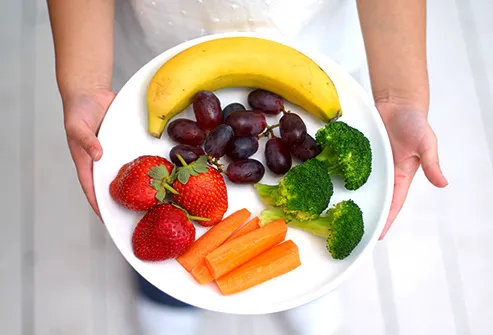
Eat: Colorful Fruits and Veggies
These have natural substances (phytochemicals) that may block the growth of cancer cells or fight the inflammation that can fuel cancer. Studies linking fruits and veggies to preventing colon cancer have been mixed, but cancer organizations recommend them as part of a healthy diet. Your best bets include broccoli, cabbage, and vitamin-C rich fruits like oranges.
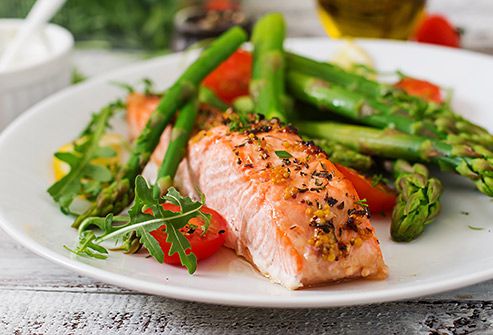
Eat: Fish
Fatty ones like salmon are rich in omega-3 fatty acids, which is great for heart health and may slow the growth of cancer cells. But whether eating fish can help keep you from getting colorectal cancer isn’t clear. Some research did find that people who ate fish instead of red meat were less likely to get rectal cancer. But limit swordfish, tuna, tilefish, shark, and king mackerel. They may have mercury and other pollutants that can harm your health over time.
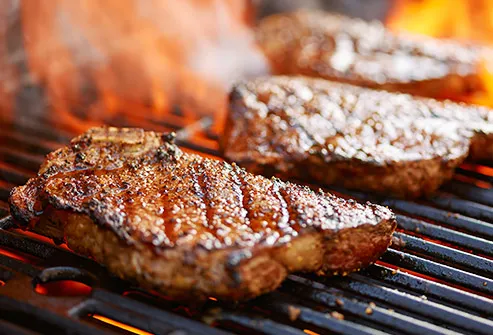
Limit: Red Meat
A juicy burger hot off the grill may tempt your taste buds, but it can be bad news for your colon. Scientists know that a regular diet of red meat, like beef, pork, and lamb, can make you more likely to get colorectal cancer, but they aren’t sure why. It may because of the meat itself, or cancer-causing substances may form when it’s cooked over high temperatures. Aim for fewer than 18 ounces a week.
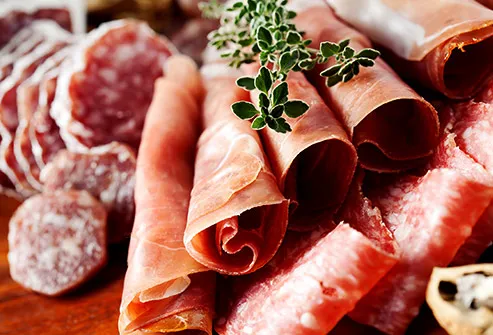
Limit: Processed Meats
These are meats that are smoked, cured, or salted, or preserved with added chemicals. Think hot dogs, bacon, ham, bologna, and packaged lunchmeat. Eating those kinds of meats often can up your chances of both colon and stomach cancer.
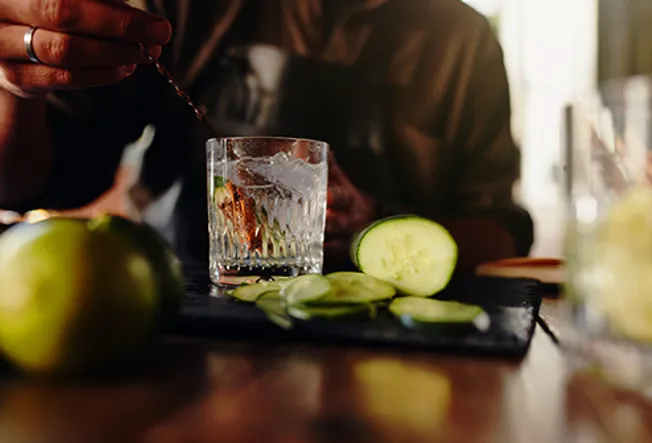
Limit: Alcohol
One drink every now and then doesn’t seem to affect your odds of colon cancer. But moderate to heavy drinking (two or three glasses a day) can make you 20% more likely to get it, and heavy drinking can raise your chances by 40%. If you often have more than three drinks a day, talk to your doctor about screening for colorectal cancer.
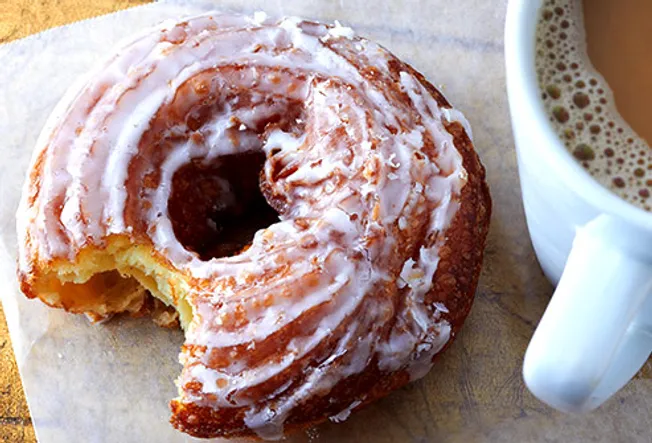
Other Possibilities
We don't know whether these common foods and drinks play roles in causing or preventing colorectal cancer: coffee, tea, caffeinated beverages, sugary foods, potatoes, and garlic, among others. Researchers continue to study the link between diet and colorectal cancer, so there’s likely more to come.
- Get link
- X
- Other Apps